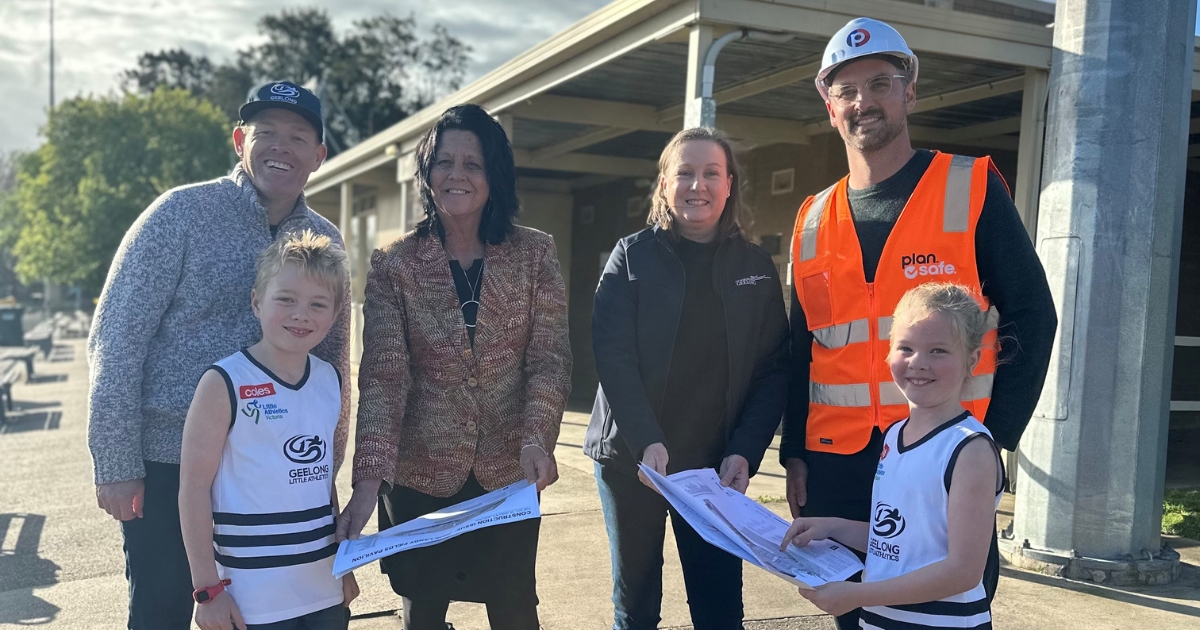Giving is key to Kyo
Every week a coloured van appears in Delhi, India to disperse 300 meals to the homeless and hungry as part of Future Hope, a charity founded by two Ocean Grove businessmen.
Kyo owners John Sutton and Paul Taylor have made a booming livelihood from bringing unique furniture and homewares around the world to Australia and are giving back to those who need it most.
“We’ve been going to India as part of our business for 15 years and there are so many homeless people,” Mr Taylor said.
“We’ve always given back, we used to do small things in the streets and give people money when they needed it (you get to know who really needs it). We’d also go out to villages and take vegetables, bags of clothes and stuff they could use.
“You can only really do a little bit this way though. We have a factory in Jodhpur and the people that work for us do a lot for the orphanage, we didn’t know until they invited us to come along.
“They’re doing a lot for charity so basically we wanted to arrange it that they could take out meals every week. Now they make 300 meals and deliver them the next day to the street and to the orphanage.”
After the initial shock of flying into Delhi 15 years ago to buy high quality products for the store, and seeing masses of homeless people, Mr Taylor said he wanted to do something about it.
“We used to deliver everywhere free of charge but at the start of this year began charging with 100 per cent of the delivery fee to go towards our charity.
Hopefully we can increase from one food delivery per week to two and upwards,” Mr Taylor said.
Mr Taylor said the pieces Kyo stocks are handpicked from countries across the world including China, Morocco, Japan, Argentina and India.
“Our business began after John, who was a dealer in antique collectables, saw that was going to diminish and wanted to try and find unusual older stuff somewhere else, that’s how it started,” he said.
“He’d been going to Japan for 30 years, so he went there. From there we decided where else could we find interesting things that are also practical, so I went to India.
“A lot of our stuff is semi-industrial, so it never seems to go out of trend and fits with the modern home, adding character and charm.”
From giant wooden doors from an Indian fort, adomed with studs to keep Elephants from pushing them over, to two-metre cooking bowls over 300 kilograms each, Paul said the joy was in finding the pieces.
“We have people that we employ permanently in China, India and Japan. We land in a place and walk and drive around knocking on doors to try and find something a bit different,” he said.
“It’s really fun and that’s why we keep doing what we do. The business has become big now, we have a warehouse in Japan and India and have a lot of people working for us, so overheads are quite high, but we keep doing it because we love it.
“You can feel our products have a history and are one offs. We have glass floats from a fishing village in north Japan, they smash them up now and use plastic, and once they’re gone, they’re gone forever.”
Mr Taylor said as business owners they have always ensured the people they deal with overseas use ethical business practices and despite getting older, wanted to keep going.
“We’re not sure where the future will take us, but we want to keep giving back that’s for sure and increase what we can do over there,” Mr Taylor said.
“We’re 58 and 68 years old now and even though we should be slowing down, it’s hard to because you want to be doing so much more and you can see the difference you’re making to their lives.”


















